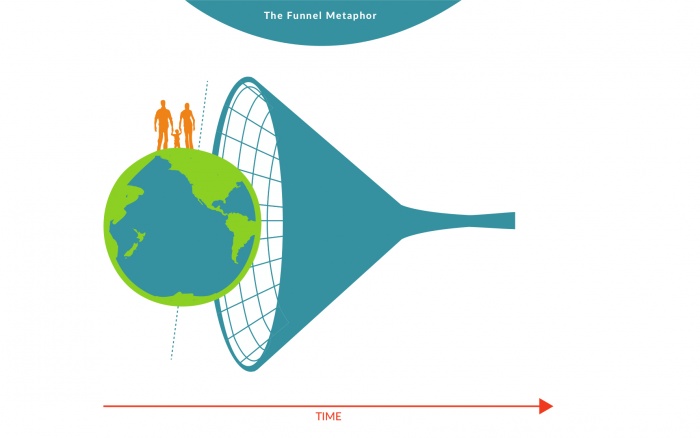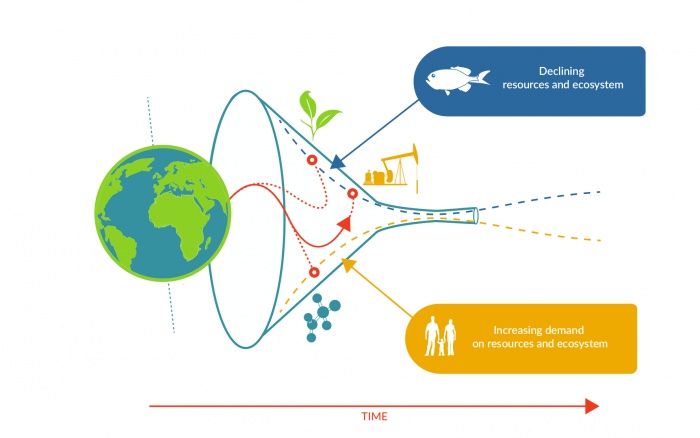Creating sustainable futures/CSF102/Understanding the challenge/E-activity2
The Funnel is a simple metaphor that represents the transition from a society that is unsustainable to one that is sustainable and, ultimately, restorative. The walls of the Funnel are currently closing because of the way we’re living representing increasing pressure over time. The model reflects that there is less and less of the things we need to ensure well-being and prosperity for people over the long-term. Yet, there is continually increasing demand for those things through population growth and agendas pursuing traditional economic development.
From an ecological and economic perspective, the Funnel represents issues like the declining amounts of natural materials, minerals, scarce metals and healthy ecosystems available to meet our needs. Globally, the health of soils, seas, rivers, lakes, forests and air is in decline because of pollution, over-exploitation and over-use. And with population numbers growing, the stress placed on these systems is increasing. From a social perspective, the Funnel represents issues like declining levels of trust, influence, equality, diversity and meaning.
The walls of the Funnel reflect the many trends of unsustainable systems that are visible all over the world. For example, increasing prices for materials, energy, land and water; declining water quality and availability; and declining environmental quality. Declining levels of trust that people have in business and government. At the same time, there are more and more people on the planet seeking first world living standards. The pressure for economic growth is relentless, and as long as that growth uses the same approach, the walls of the Funnel continue to close.
The key point of the Funnel is that until we redesign the way society is governed at a global level (primarily the economic governance model), the walls of the funnel will continue to get closer together with inevitable risks for businesses and people.

